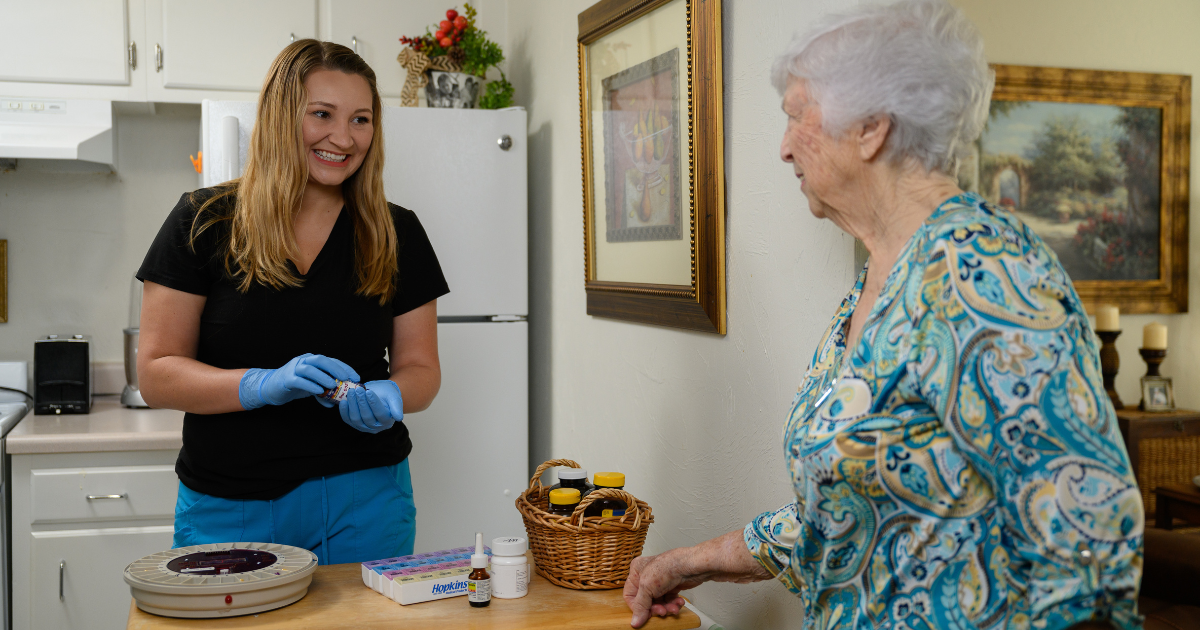Receiving health care does not always happen in a hospital or a doctor’s office. Depending on the situation, a patient may want or need to receive care in another setting, such as their home. This is referred to as home health care. What is home health care, exactly? It can include a wide variety of services, including injections, administration of medication, therapy and skilled nursing. Most medical care requires referral from a doctor while other assistance, such as companion services and help with errands and daily activities, does not.
Many patients benefit from the flexibility and convenience of this type of care, but it’s not the right fit for everyone. Here’s a basic introduction to home health care and whether it might be the right choice for you.
Who Is It For?
There are many types of patients who may benefit from home health care. Many require something in common, however: a doctor’s orders. You cannot get started with certain care options until you have been referred for that type of service.
Patients who may need home health services include those who are ill, have suffered an injury, are in unstable health or require nutrition therapy. Working with a health care professional can help you recover and become more independent or provide relief from an ongoing condition. It is not the same thing as hospice, although it is sometimes used to slow the decline of a patient who is unwell.
Benefits
Patients who have been referred to home health care can receive a number of benefits from this type of care. First, it can be more comfortable and convenient than going back and forth to a hospital or doctor’s office. This is particularly true for those suffering from extensive injuries or chronic pain. Second, it is frequently more affordable than traditional care in a hospital.
In addition, patients have more flexibility and independence. The services they receive are customized to their individual needs, and they don’t have to leave home to receive them.
What to Expect
Are you getting started with home health care, and aren’t sure what to expect? The process is similar to care provided in a traditional health care setting. Once your doctor refers you for care, the agency will schedule an initial visit to your home. During that first appointment, they will ask questions to learn about you, your situation, any medications and your overall care plan.
After that, your care provider will make regular visits to your home to administer care. The frequency of their visits depends on the plan decided upon by your doctor. As you receive care, they will stay in touch with the doctor to make sure your plan stays on-track. They can also adjust that plan as necessary.
Health Care That Cares About You
Advent Christian Village Home Care Agency is a licensed home health services agency that provides compassionate, in-home skilled nursing care and assistance in Suwannee and Lafayette counties. Whether you need health care after returning home from the hospital, a helper to assist with personal errands, or companion services, our team will help you to recover in the comfort of your home.
Receiving care through ACV Health’s home health care services requires a referral from your physician or hospital. The first step is to have your hospital or physician fax the order or a referral form to our office. We are currently accepting patients who are at least 18 years old in Suwannee and Lafayette counties. Click here to learn more.
This blog is not intended as medical advice. If you have questions about home health care, please speak with your doctor.




